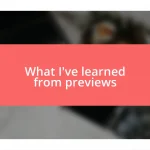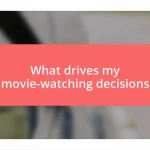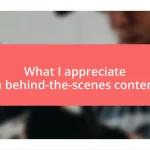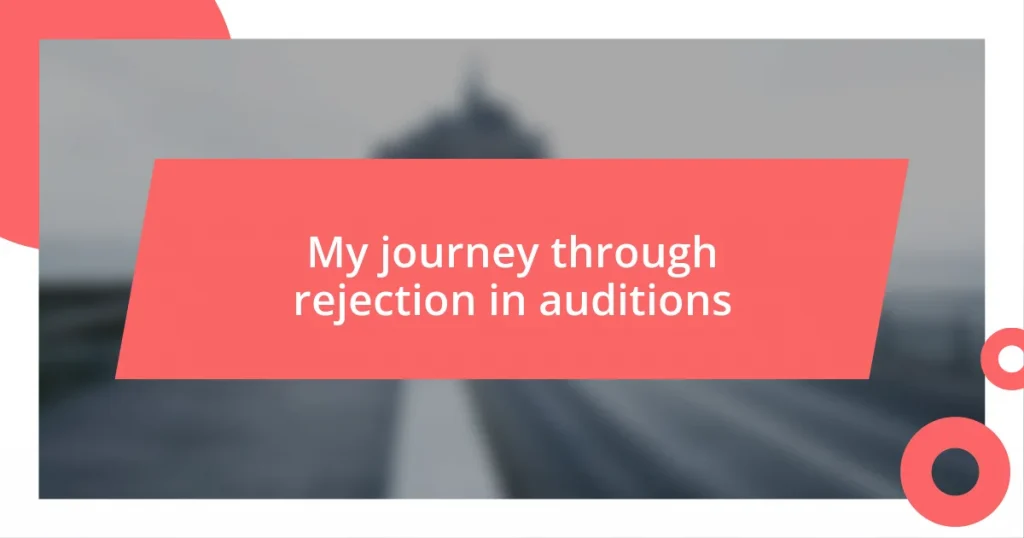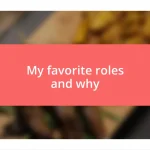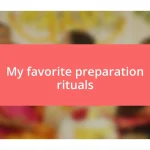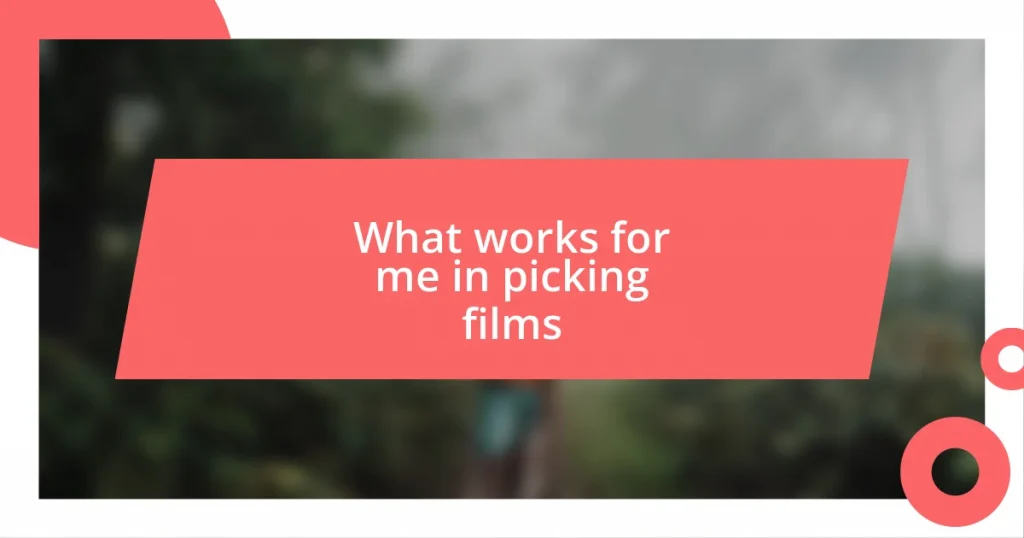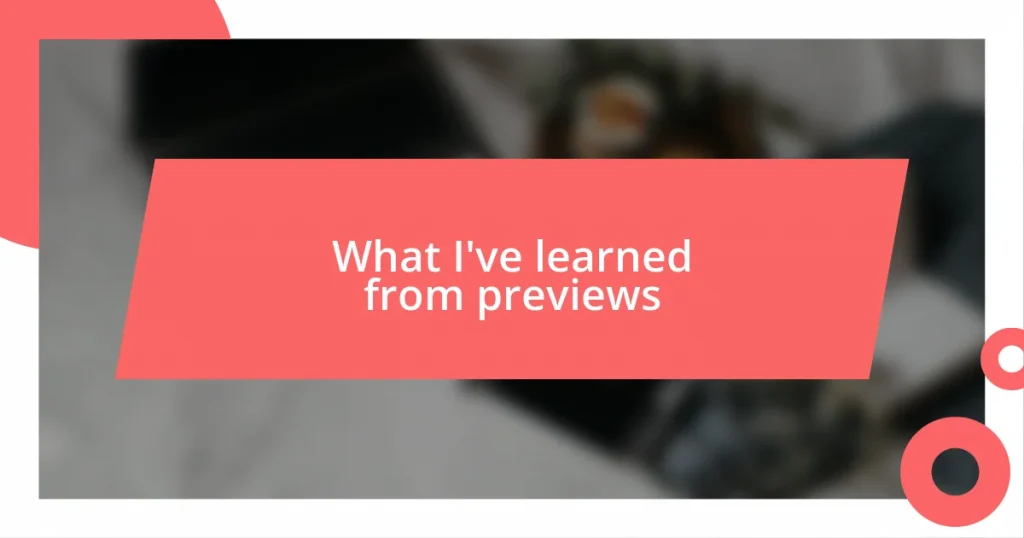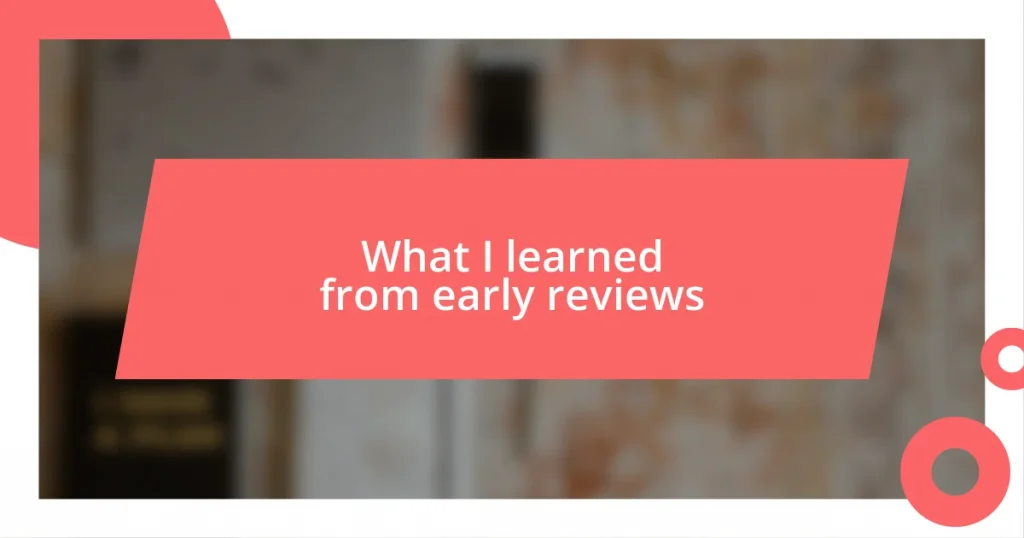Key takeaways:
- Auditions are opportunities for connection and personal growth, shifting the focus from fear of rejection to curiosity about learning from the experience.
- Rejection is a common challenge that fosters resilience, pushing actors to redefine fear and bond with others over shared struggles.
- Planning and preparation for auditions enhance performance quality and boost confidence, emphasizing the importance of a proactive approach and mindset.
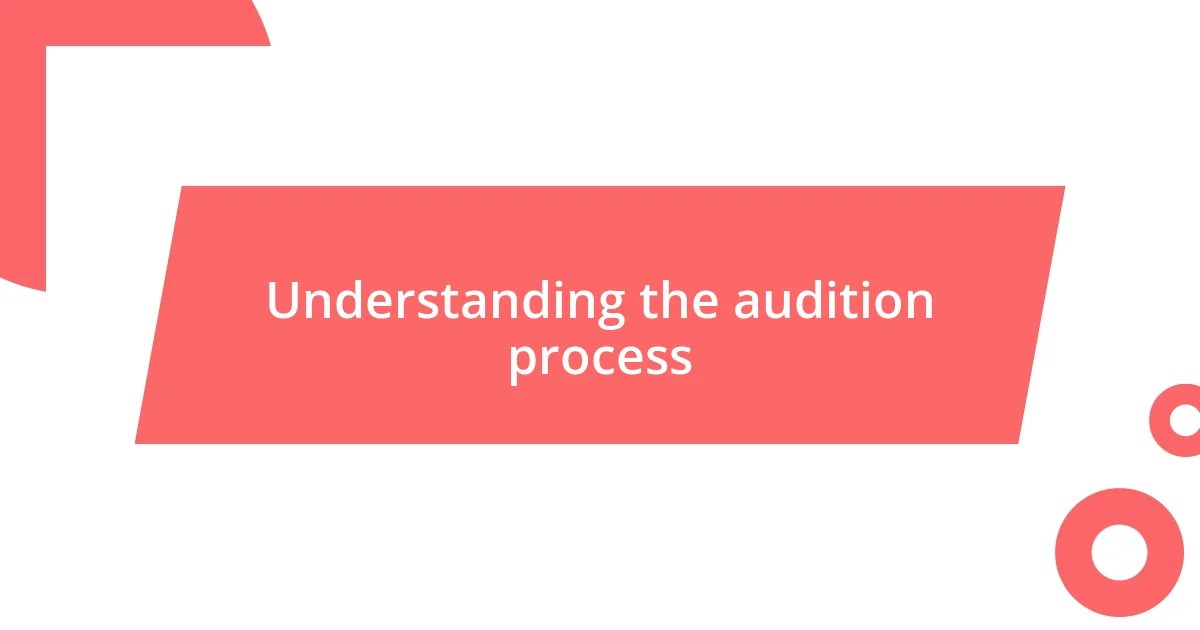
Understanding the audition process
Auditions can feel like an overwhelming maze at times. I remember my first audition; the tension in the room was palpable, and I could feel my heart racing as I waited for my turn. It’s essential to approach the audition with a mindset of curiosity rather than fear—what will the experience teach you about your craft or yourself?
What often gets overlooked is that auditions are not just about showing off your talent; they’re a chance to connect with the people behind the casting table. I vividly recall walking into an audition where the casting director smiled genuinely, putting me at ease. That small gesture shifted my perspective—suddenly, I wasn’t just vying for a role; I was part of a collaborative process.
The nature of auditions varies widely, from cold readings to musical performances, which can be both exciting and intimidating. Have you ever felt the weight of expectation? I have, during that nerve-wracking moment when you step into the spotlight. Embracing this unpredictability can be daunting, but it’s also what makes each audition unique and worthwhile.
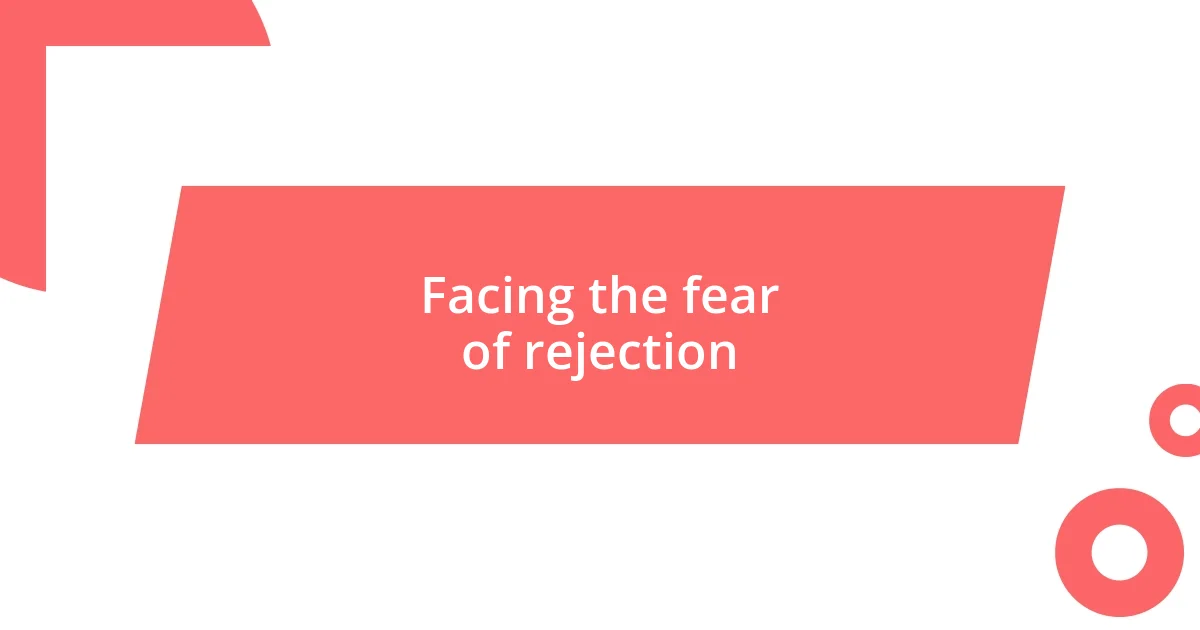
Facing the fear of rejection
Facing rejection is one of the most challenging aspects of the audition process. I remember one particularly brutal round where I was more focused on what the casting directors might think of me than on delivering my performance. Each time I left the room, I felt as though I was carrying a heavy weight of doubt, questioning my talent and worthiness. It took time—and quite a few rejections—for me to realize that each ‘no’ was simply one more step on my journey to the right fit.
When I think about my experiences, fear of rejection often felt like an unwelcome companion, lurking in the shadows of each audition. I’ve had moments when I froze at the thought of being judged, where my mind raced with images of failure. Yet, paradoxically, these very moments taught me resilience. Each rejection nudged me closer to realizing that true courage lies in facing the fear head-on, learning to redefine it as a catalyst for growth instead of a stumbling block.
In the end, it’s essential to understand that rejection is a universal experience—every actor has faced it. I still remember how freeing it was to finally articulate that fear to a fellow actor who shared her own battle scars. We laughed and cried together, bonding over our individual journeys. This connection not only eased my anxiety but also transformed rejection from a personal defeat into a shared adventure, reminding me that I am not alone in this pursuit.
| Emotion | Experience |
|---|---|
| Fear | Overwhelming, paralyzing before auditions |
| Growth | Learning to see rejection as a stepping stone |
| Connection | Bonds formed through shared struggles |
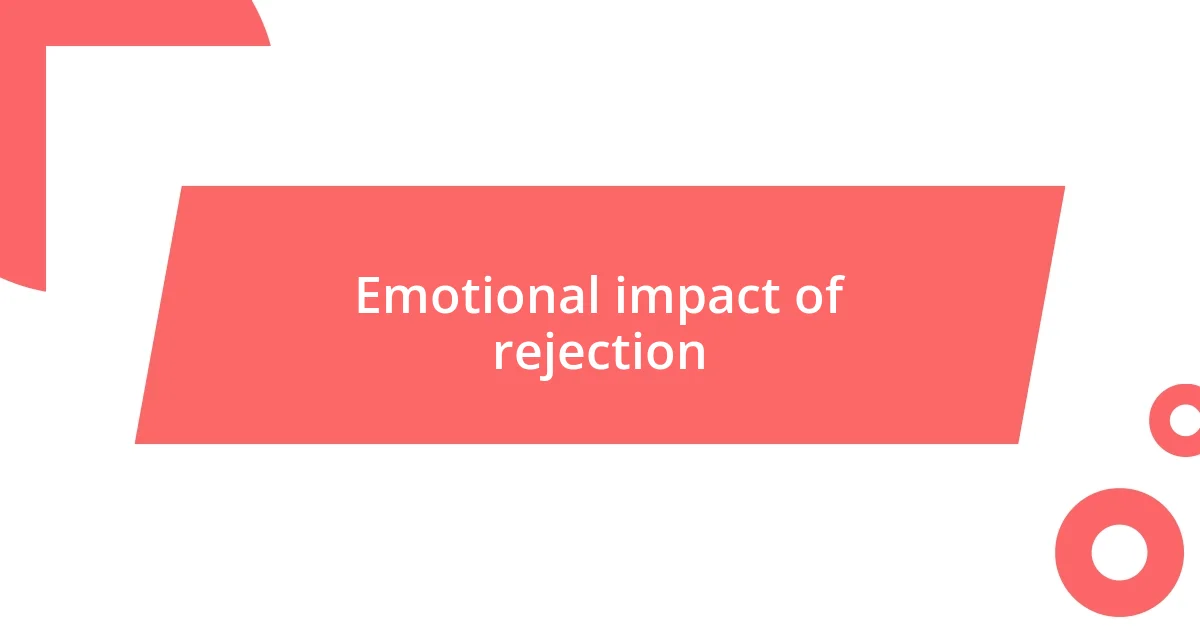
Emotional impact of rejection
It’s intriguing how the emotional impact of rejection can sometimes feel like an echo that lingers long after the audition is over. I remember sitting in my car after a particularly tough casting call, tears streaming down my face as I battled feelings of inadequacy. It was as if each ‘no’ chipped away at my confidence, making me question my passion for acting. But through those moments of despair, I learned that my worth isn’t defined by someone else’s opinion. Embracing those emotions helped me forge a stronger connection to myself and my craft.
The cumulative effect of rejection is often silent yet profound. Here are some emotions I’ve experienced along my journey:
- Disappointment: That gut-wrenching feeling when you realize you’ve fallen short of your expectations.
- Self-Doubt: A nagging thought, “Am I really cut out for this?” that surfaces more often than I’d like to admit.
- Resilience: With time, I discovered a growing ability to bounce back, fueled by the sheer love for my art.
- Community: I’ve leaned on friendships built through shared experiences, turning solitude into camaraderie through candid conversations.
By acknowledging the emotional rollercoaster that comes with rejection, I’ve found comfort in knowing it’s all part of the journey, not the destination.
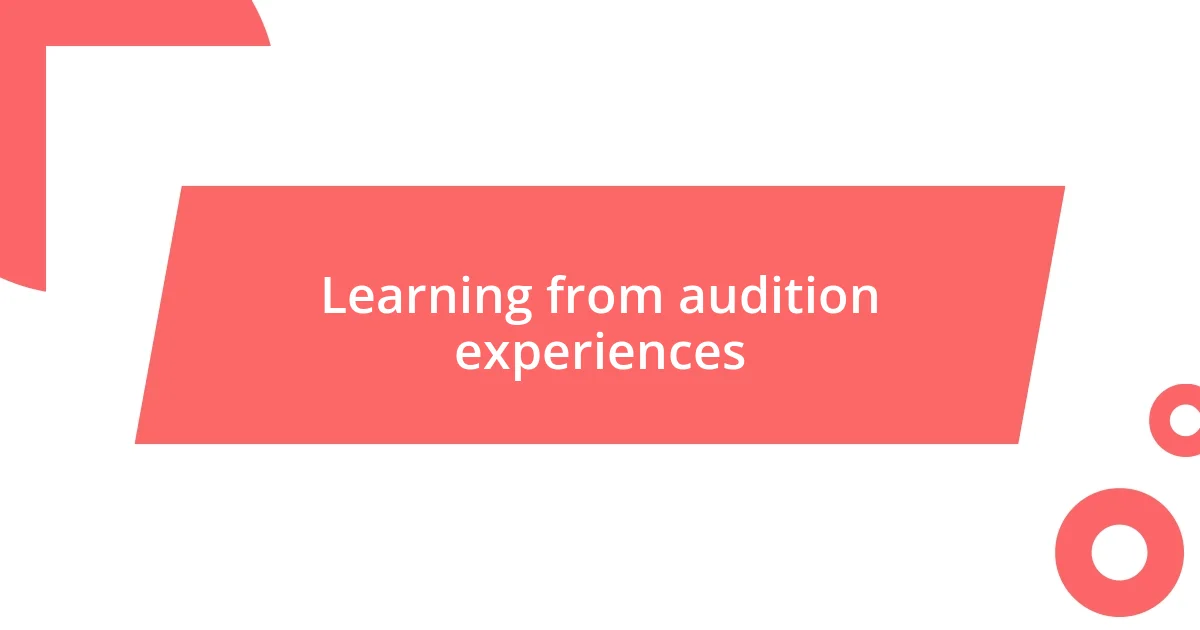
Learning from audition experiences
The lessons learned from audition experiences can be surprisingly rich, often coming from the most challenging moments. I remember one audition where I stumbled over my lines, feeling the weight of every gaze on me. Instead of crumbling under pressure, I embraced the mistake. That experience taught me to view failures as opportunities for growth. Isn’t it funny how falling flat can sometimes lead to a deeper understanding of your strengths?
With every rejection, I found myself refining my craft. It’s as if each casting was a puzzle piece, helping me to understand the bigger picture of who I am as an artist. I often ask myself, “What can I pull from this experience?” Each time, I discovered new techniques to approach my character or even ways to manage my nerves. By analyzing my performances, I realized that the process itself can be just as valuable as landing the role.
As I continue my journey, I cherish the relationships built with fellow actors who have shared similar rejection stories. I distinctly recall bonding with a friend over a disastrous audition we both had, laughing together about how we forgot our lines in the most crucial moments. Those discussions transformed the pain of rejection into a shared camaraderie, reminding me that every experience is part of a larger learning curve. Connecting through our struggles not only bolstered my confidence but also enriched my perspective on what it means to grow in this industry.
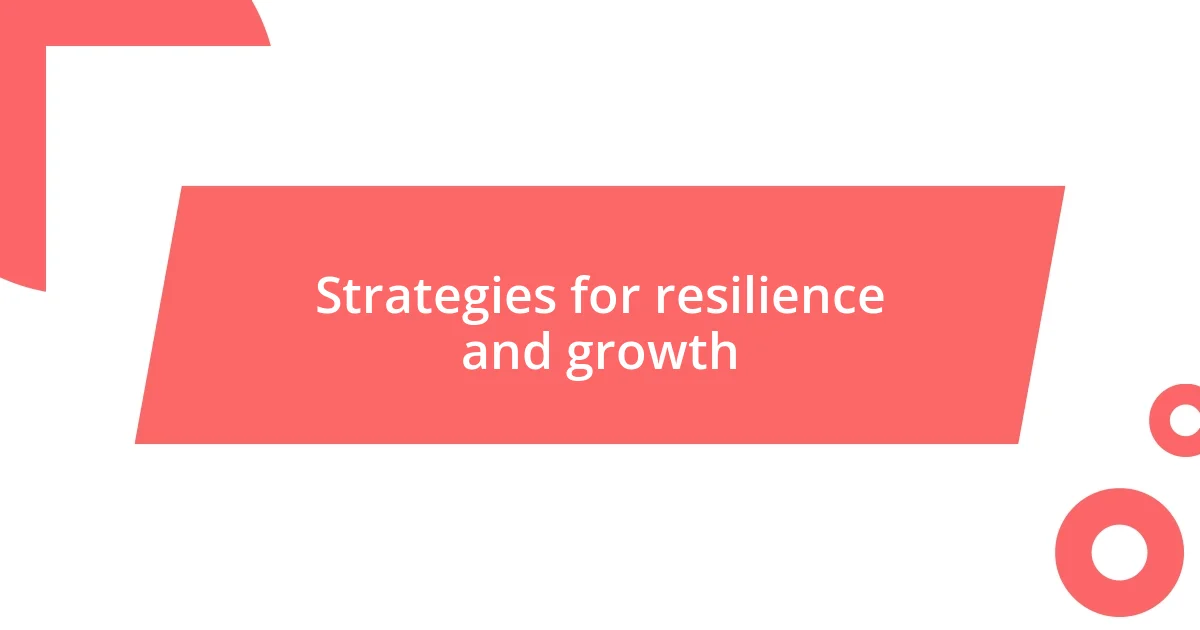
Strategies for resilience and growth
Finding ways to bounce back from rejection has become essential in my journey. One particularly tough casting call left me feeling deflated, and I wondered how I could possibly continue pursuing my passion. I realized that surrounding myself with positive influences made a difference. I started reaching out to fellow actors, sharing not just the victories but also the heartaches. These conversations became a supportive lifeline, transforming my understanding of resilience. Have you ever considered how the company we keep can shape our responses to setbacks?
Embracing a growth mindset was another game-changer for me. Instead of viewing each ‘no’ as a dead end, I began to see it as a stepping stone. I encouraged myself to ask, “What have I gained from this?” After one particular rejection, I dedicated time to exploring new acting techniques that I had been curious about. This exploration reignited my passion and helped me grow both as an artist and an individual. It’s fascinating how shifting perspective can fuel creativity, isn’t it?
Additionally, I focused on setting small, achievable goals to build my confidence back up. After a series of rejections, I committed to auditioning for roles that felt within reach, even if they were less glamorous. Celebrating small wins reminded me that growth often occurs incrementally. I recall how exhilarating it felt when I finally landed even a minor role; I could feel my spirit lift. How do you measure your progress during tough times? Recognizing those moments, no matter how small, can create a powerful momentum for growth.
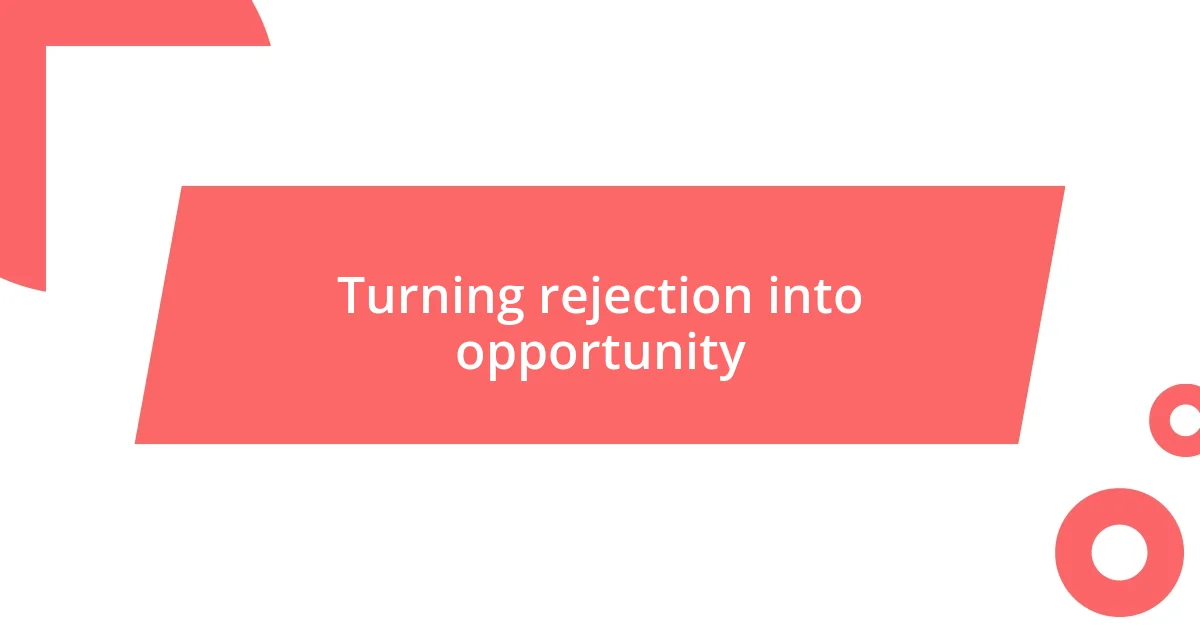
Turning rejection into opportunity
Turning rejection into opportunity is something I’ve come to embrace in my journey. I remember a particular audition where I was convinced I had it in the bag, only to walk away empty-handed. Instead of succumbing to disappointment, I seized that moment as a nudge to evaluate my technique and approach. Have you ever felt a setback push you to analyze yourself more closely? It’s wild how such moments can act as catalysts for change.
Reflecting on those rejections, I started asking myself pertinent questions: “What could I have done differently?” This introspection led me to experiment with improvisation in my practice sessions. I found that allowing myself to go off-script in a safe space not only enhanced my creativity but often resulted in more authentic performances. Isn’t it interesting how stepping away from the conventional can open up new paths?
After one particularly heartbreakingly close rejection, I decided to channel my energies into writing my own material. This choice turned out to be transformative—I connected with my own voice and developed a deeper understanding of character development. Each rejection became a stepping stone, allowing me to reframe my artistry. What if each rejection is merely an opening to explore new avenues we hadn’t considered before? It’s certainly a perspective that has added layers to my craft.
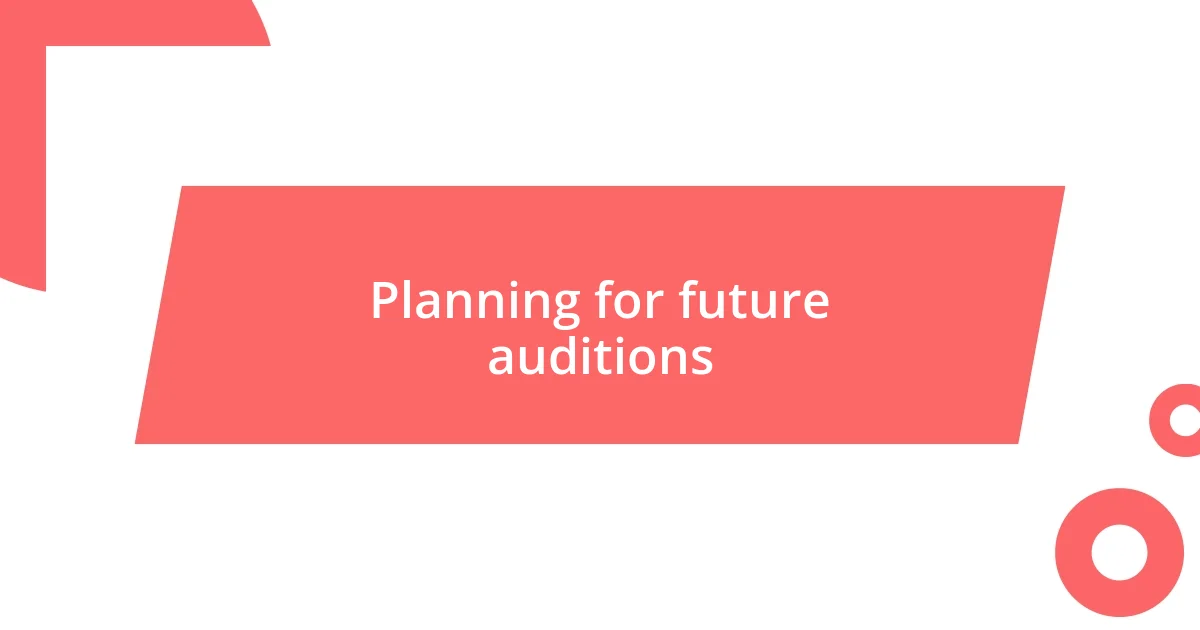
Planning for future auditions
Planning for future auditions can be a crucial part of refining your craft. I vividly remember the first time I mapped out my audition calendar for a whole season; it felt invigorating. By planning ahead, I was able to identify roles that truly resonated with me, rather than just auditioning for anything that came my way. Isn’t it empowering to make choices that align with our passions?
Along the way, I discovered the importance of tailoring my preparation for each audition. It became clear that simply memorizing lines wasn’t enough. I began integrating character research and relevant background work into my routine, allowing me to bring depth to my performances. I still think of that one audition where the casting director mentioned how my nuanced portrayal stood out because of the effort I put into understanding the character’s journey. Have you ever considered how much preparation can influence your confidence on audition day?
As I continued planning future auditions, I embraced the idea of practicing resilience through visualization techniques. I would picture myself stepping onto the stage filled with confidence, embodying the character completely. This practice made a significant difference to my mindset. The more I visualized success, the more prepared I felt. I’d love to hear how you envision your audition experiences and the role that visualization plays in your preparations.

